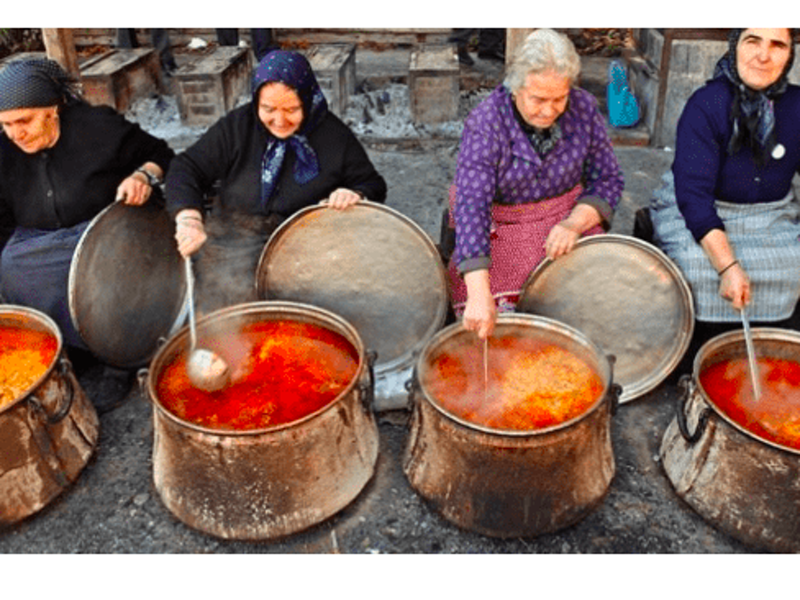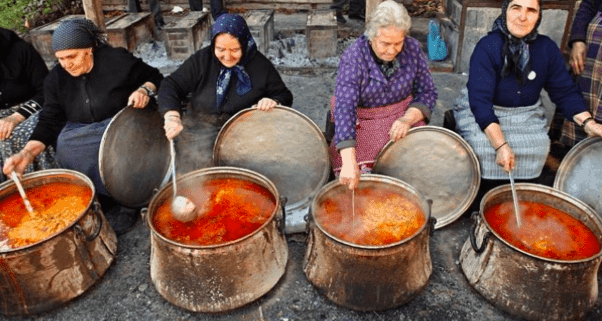
November 21st is a big day in the Greek Orthodox calendar as it is the Isodia Tis Theotokou- The Feast commemorating when as a young child, the Virgin Mary entered the Temple in Jerusalem.
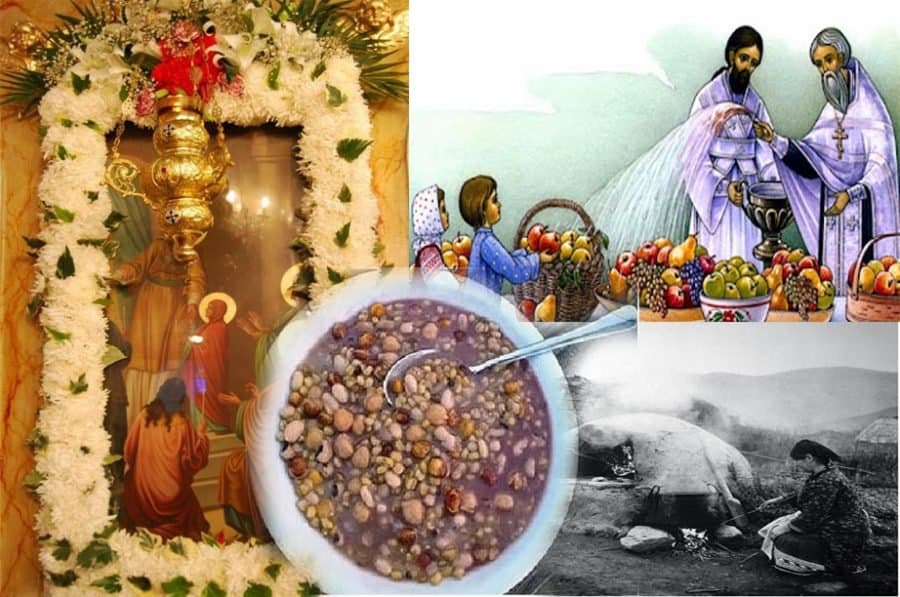
It is also a day where traditionally every Mama & Yiayia in many Greek villages would be on a mission, gathering as many Polysporia as they could- including all types of beans, corn, peas, wheat and lentils and they would proceed to cook all the seeds together for a big family feast.
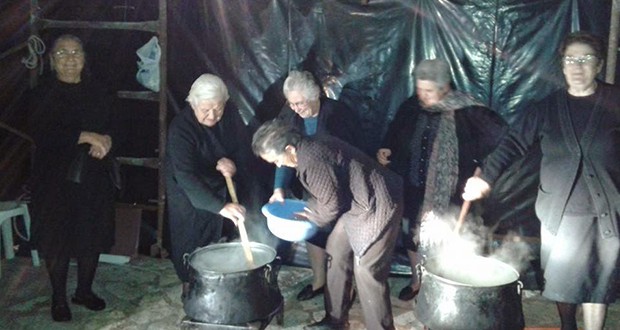
This feast is also known as Panagia Mesosporitissa (Panagia= Virgin Mary, mesos= middle, sporos= seed), Panagia Archisporitissa (archisporitissa = the sowing begins) Panagia Aposporitissa (= the sowing is over) or Polysporitissa (many seeds) because of the offering of legumes and grains of the latest harvest.
The Sporous are traditionally boiled together and taken to the village church to be blessed by the priest. On the eve and before the morning of November 21, Yiayia would go to the village fountain and pour a tablespoon of polysporia, a few coins, a little wine and raki and say, "Οποs τρεχει το νερο να τρεχει το βιο."
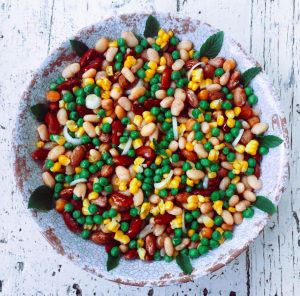
This was a prayer to God that they would have a good supply of food for their children- just like the never-ending water in the springs.
After that, families would gather together and eat bowls of soup and celebrate with their neighbours and the rest of the village at the Panigiri (festival).
Today, many Greek ladies in Greece and around the world still hold this tradition by cooking large pots of Fakes (lentils) or Fassolada (beans) on November 21 each year.

